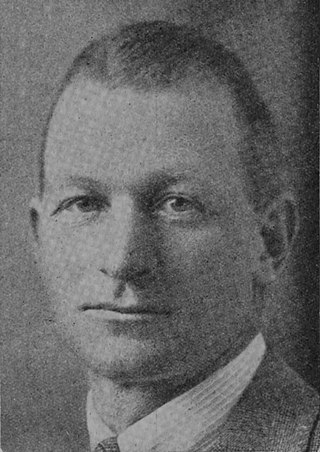
New Zealand is a representative democracy in which members of the unicameral New Zealand Parliament gain their seats through elections. General elections are usually held every three years; they may be held at an earlier date at the discretion of the prime minister, but that usually only happens in the event of a vote of no confidence or other exceptional circumstances. A by-election is held to fill an electorate vacancy arising during a parliamentary term. The most recent general election took place on 14 October 2023.

A writ of election is a writ issued ordering the holding of an election. In Commonwealth countries writs are the usual mechanism by which general elections are called and are issued by the head of state or their representative. In the United States, writs are more commonly used to call special elections for political offices.

Wyatt Beetham Creech is a retired New Zealand politician. He served as the 14th deputy prime minister of New Zealand in Jenny Shipley's National Party government from August 1998 to December 1999.

The 1943 New Zealand general election was a nationwide vote to determine the shape of the New Zealand Parliament's 27th term. With the onset of World War II, elections were initially postponed, but it was eventually decided to hold a general election in September 1943, around two years after it would normally have occurred. The election saw the governing Labour Party re-elected by a comfortable margin, although the party nevertheless lost considerable ground to the expanding National Party.
Parliamentary by-elections in the United Kingdom occur when a Member of Parliament (MP) vacates a House of Commons seat during the course of a parliament.

Frederick William Schramm was a New Zealand politician of the Labour Party. He was the eleventh Speaker of the House of Representatives, from 1944 to 1946.
Mary Victoria Cracroft Grigg, Lady Polson, was a New Zealand politician of the National Party.

Arthur Nattle Grigg MC was a New Zealand politician of the National Party.

Sir William John Polson was a New Zealand politician, first as an Independent and then in the National Party. He joined the National Party on its formation in 1936, and "later acted effectively as Holland's deputy".
Mid-Canterbury was a New Zealand parliamentary electorate in rural Canterbury. It existed from 1928 to 1946 and was represented by six Members of Parliament, including Mary Grigg, the first woman National Party MP.
Timaru was a parliamentary electorate, in New Zealand's South Island. It existed continuously from 1861 to 1996 and was represented by eleven Members of Parliament.
Temuka was a parliamentary electorate in the Canterbury region of New Zealand from 1911 to 1946. The electorate was represented by four Members of Parliament.

Melville Edwin Lyons, sometimes called Tiny, was briefly a Reform Party Member of Parliament in New Zealand until his election was declared void. A journalist by trade, he became involved in local politics in Christchurch after having served in WWI. He was Deputy Mayor of Christchurch for six years under mayor Ernest Andrews.
The City of Christchurch by-election of 1896 was a by-election held on 13 February 1896 during the 12th New Zealand Parliament in the urban seat of the City of Christchurch. The by-election was triggered by the appointment of William Pember Reeves as Agent-General to the United Kingdom. The Liberal Government led by Richard Seddon had trouble finding a suitable candidate and delayed Reeves' resignation until the day he left his home in Christchurch to take up the London post. Nonetheless, rumours of Reeves' pending resignation had been circulating for a month and candidates were lining up. The Liberal Party candidate who was secured resigned within a week of Reeves' eventual resignation, and a new candidate had to be found. Three candidates contested the election: Richard Molesworth Taylor was the official Liberal Party candidate, Tommy Taylor was a prohibitionist also with liberal views but an ardent opponent of Seddon, and Charles Lewis was the reluctant conservative candidate of the opposition. Being a Liberal Party stronghold, vote splitting between those candidates who held liberal views secured the election win for Lewis, with the Liberal Party candidate coming last.
The 1942 Hauraki by-election was a by-election for the electorate of Hauraki held during the 26th New Zealand Parliament.
The 1942 Temuka by-election was a by-election for the electorate of Temuka held during the 26th New Zealand Parliament.

Nicola Anna Grigg is a New Zealand politician and Member of Parliament in the House of Representatives representing the Selwyn electorate since October 2020. Since 27 November 2023, she has served as the Minister of State for Trade, Minister for Women, and an Associate Minister of Agriculture in the Sixth National Government. She is a member of the National Party.








